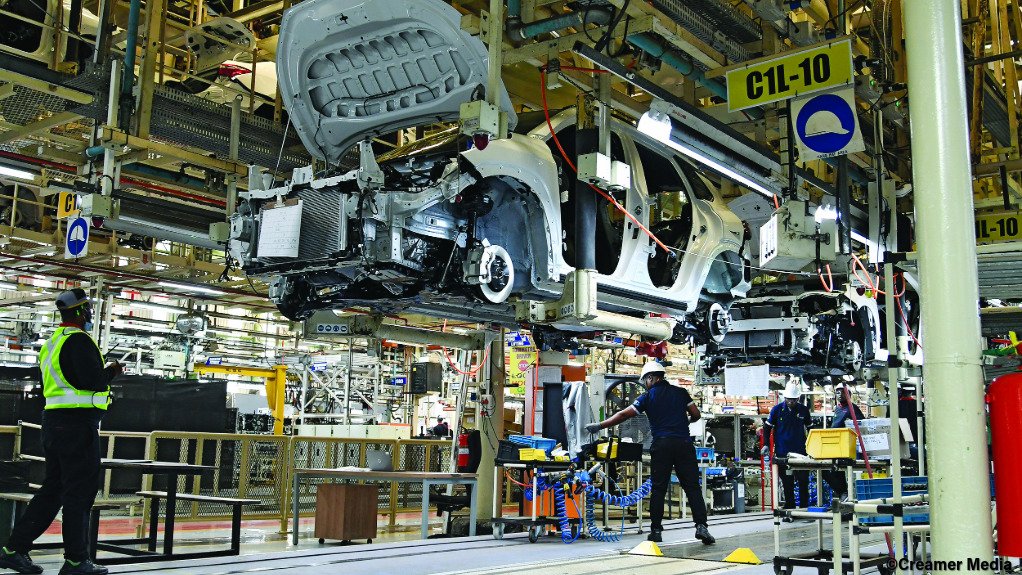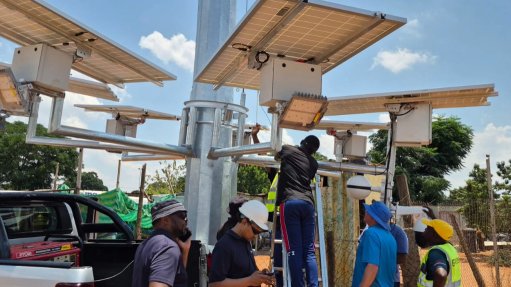‘Deep collaboration’ through regional value chains could unlock rapid African industrialisation
There is potential to catalyse rapid industrialisation in Africa by pursuing policies that actively leverage both existing demand and continental moves towards trade integration to increase the production of manufactured goods, a well-known industrial policy and automotive specialist has argued.
Speaking at the Manufacturing Indaba in Johannesburg, Toyota Wessels Institute for Manufacturing Studies’ Professor Justin Barnes made the case for developing regional value chains that tapped into existing demand rather than seeking only to sell into growing African markets.
Using the example of the African automotive market, which Barnes has studied extensively, he argued that there was potential for significant manufacturing growth using regional value chains to overcome the current constraints of insufficient economies of scale, limited production capabilities and the ongoing importation of used vehicles.
While his research pointed to a weak outlook for new vehicle sales in South Africa, owing to dim prospects for the growth of the middle class, he pointed to a far more promising prognosis for several countries in both East and West Africa.
Using a yearly income threshold of $10 000 for an adult in Africa to be in a position to buy a car, he argued that African vehicle sales could rise to about 3.4-million by 2035 from an estimate of about 2.5-million units in 2025.
The forecast was based on current economic and income growth forecasts, as well as an assumption that countries terminated policies allowing for the importation of pre-owned vehicles from other regions.
The forecast also catered for Barnes’ assessment that South African vehicle sales, which were currently the highest on the continent, were likely to lift only modestly over the period, from about 563 000 to about 614 000.
By contrast, there were potential high-growth nodes in West Africa, where Nigerian sales could rise from about 241 000 vehicles to 350 000 and Ghana could increase from 81 000 to 148 000, as well as East Africa, where Kenyan sales could rise to 156 000 by 2035 from 93 000.
Barnes also exhibited results from his recent modelling of automotive sales in the Economic Community of West African States region, where the combined sales of Côte d'Ivoire, Ghana, Nigeria and Senegal were set to surpass those of South Africa from 2028 onwards.
“This indicates that there are huge opportunities for the development of the automotive industry across Africa,” he said.
Besides addressing the problem of second-hand imports, he also said that far greater emphasis should be given by policymakers to the micro, meso and macro interventions needed to support regional value chains and the implementation of the African Continental Free Trade Area Agreement.
However, it also required soul searching about what types of society African government’s wanted to build.
These visions would have to be supported by an organisational framework that allowed governments to connect with the private sector and for African companies to connect with one another, as well as policies that bolstered not only skills but also the capability of individuals and companies.
For South African manufacturers to align themselves with the opportunity, a different mentality would also be required from the one that currently prevailed, Barnes argued.
“We cannot repeat a colonising model, which is my experience of South Africans, who just want to trade in Africa.
“We have to think about how South Africa actually operates as an African economy and work towards regional value chains.”
Creating what he called “deep collaboration” would necessarily involve providing access to the South African market for other African companies.
“It’s not about being nice to one another, because that is what is actually needed to escape the confines of a very small market and the reality that the South African vehicle market is unlikely to grow significantly.”
Article Enquiry
Email Article
Save Article
Feedback
To advertise email advertising@creamermedia.co.za or click here
Press Office
Announcements
What's On
Subscribe to improve your user experience...
Option 1 (equivalent of R125 a month):
Receive a weekly copy of Creamer Media's Engineering News & Mining Weekly magazine
(print copy for those in South Africa and e-magazine for those outside of South Africa)
Receive daily email newsletters
Access to full search results
Access archive of magazine back copies
Access to Projects in Progress
Access to ONE Research Report of your choice in PDF format
Option 2 (equivalent of R375 a month):
All benefits from Option 1
PLUS
Access to Creamer Media's Research Channel Africa for ALL Research Reports, in PDF format, on various industrial and mining sectors
including Electricity; Water; Energy Transition; Hydrogen; Roads, Rail and Ports; Coal; Gold; Platinum; Battery Metals; etc.
Already a subscriber?
Forgotten your password?
Receive weekly copy of Creamer Media's Engineering News & Mining Weekly magazine (print copy for those in South Africa and e-magazine for those outside of South Africa)
➕
Recieve daily email newsletters
➕
Access to full search results
➕
Access archive of magazine back copies
➕
Access to Projects in Progress
➕
Access to ONE Research Report of your choice in PDF format
RESEARCH CHANNEL AFRICA
R4500 (equivalent of R375 a month)
SUBSCRIBEAll benefits from Option 1
➕
Access to Creamer Media's Research Channel Africa for ALL Research Reports on various industrial and mining sectors, in PDF format, including on:
Electricity
➕
Water
➕
Energy Transition
➕
Hydrogen
➕
Roads, Rail and Ports
➕
Coal
➕
Gold
➕
Platinum
➕
Battery Metals
➕
etc.
Receive all benefits from Option 1 or Option 2 delivered to numerous people at your company
➕
Multiple User names and Passwords for simultaneous log-ins
➕
Intranet integration access to all in your organisation






















